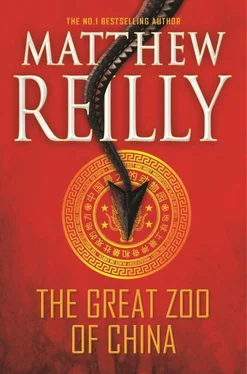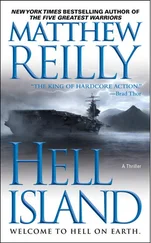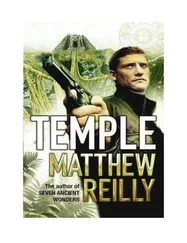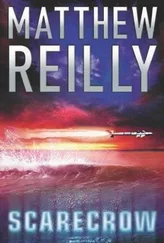She saw many details here.
A sticker on the television camera read CCTV: that was the Chinese state television network. The cameraman’s jacket was a cheap Lacoste rip-off, common in China. The female TV reporter looked like a stewardess on an aeroplane: crisp brown skirt-suit with the same CCTV logo on the breast pocket.
The American being interviewed—and he seemed quite comfortable being the centre of attention—was a big-bellied man of about fifty with a carefully trimmed grey beard that had clearly been grown in an attempt to conceal his wobbly jowls, the jowls of a man who had enjoyed many long lunches.
‘That’s Seymour Wolfe,’ Na whispered reverently to CJ, ‘from The New York Times .’
Na needn’t have singled him out. CJ knew who he was. Everyone knew who Seymour Wolfe was.
He was not just a columnist at the Times , he was the columnist , the paper’s most well-known and influential op-ed writer. After a few successful books on twenty-first-century global affairs, he was regarded as the man who informed America about the world.
He also, CJ saw, appeared entirely untroubled to be travelling in a jet with blacked-out windows.
CJ heard snippets of what Wolfe was saying:
‘—I was here for the Beijing Olympics in 2008. What a spectacle! Things move so fast here. If the government wants a new high-speed train built, it is built. If it wants a new city, then a new city is built. It is just so dynamic —’
‘—China is the future and the rest of the world had better get used to it. One in five people on this planet is Chinese—’
The CCTV reporter smiled broadly, almost fawning as she asked, ‘Are you excited about what you are going to see today?’
Wolfe leaned back and smiled. ‘I’m not sure what to think, as I don’t yet know exactly what I am going to see. If China has re-imagined the concept of the zoo, then I am curious to see what she has done. I cannot imagine it will be small. I am… how shall I put this… officially intrigued.’
The interview concluded and CJ and Hamish were ushered inside the jet.
Na introduced them to Wolfe, before indicating the other, much younger man travelling with him. ‘And this is Mr Aaron Perry, also from The New York Times , from their e-news division.’
Aaron Perry was about thirty and he had spiky black hair that had been carefully moulded into position with large amounts of gel. He wore serious thick-framed glasses, a designer suit and the attitude of someone who knew more than you did. He slouched in his seat. CJ hadn’t heard of him, but evidently Hamish had.
‘You’re the Twitter guy!’ Hamish boomed. ‘I love your shit, dude. Forget the paper, I get all my news from your Twitter feed.’
‘Thank you.’ Perry smiled wanly, apparently too cool to accept praise. He held up a small Samsung phone. ‘My office. Although not today.’
‘Why not?’ CJ asked.
Na answered. ‘Our destination is a secure facility. It is covered by an electronic scrambling system. No cell phone signals in or out.’
‘And the blacked-out windows?’ Hamish asked. ‘You don’t want us to see where we’re going?’
‘Please forgive us, but the location of our zoo is a closely guarded secret, at least for now,’ Na said. ‘Not only must cell phone tracking systems be disabled, but even visual references. You will understand why when we get there. I am very sorry.’
The blacked-out Bombardier didn’t take off immediately. Apparently, it was still waiting for two final passengers.
As the plane waited, the Chinese TV reporter approached CJ.
‘Dr Cameron?’ she asked. ‘Dr Cassandra Cameron from the San Francisco Zoo? I am Xin Xili, China Central Television. Would you mind if I interviewed you?’
‘Sure,’ CJ said.
The reporter gave CJ a quick up-and-down, her gaze pausing for the briefest of moments on the scars on CJ’s left cheek. It was not exactly a pleasant evaluation.
When the interview began, the fawning smiles of her interview with Wolfe vanished.
‘You are an expert in reptiles, are you not, Dr Cameron?’ Xin asked quickly.
‘I am.’
‘One of the world’s leading experts in large reptiles: the Nile crocodile, the Australian saltwater crocodile, the American and Chinese alligators.’
‘That’s correct,’ CJ replied.
‘Not for much longer,’ Xin said curtly.
She then signalled for the cameraman to stop recording, smiled tightly at CJ and turned away.
CJ watched her go, perplexed.
Just then, another private jet pulled up alongside the Bombardier, a smaller and much older Gulfstream.
Looking out the open door, CJ saw that it had an American flag painted on its side plus the words: UNITED STATES DIPLOMATIC SERVICE.
Two men in suits emerged from the Gulfstream and walked over to the Bombardier.
The taller and older of the two—he wore a perfect grey suit, had perfect silver hair, a perfect tennis tan and perfect teeth—swept into the jet as if he owned it. He smiled broadly at everyone, the practised smile of a professional politician.
‘So sorry to keep you waitin’, folks,’ he said with a distinctly Texan drawl. CJ noticed he was wearing expensive cowboy boots. ‘I’m Kirk Syme, US Ambassador to China. Just flew down from Beijing. Got caught on the phone to the President. You know how it is when the boss is on the line. You gotta take the call.’ He indicated his offsider. ‘This is Greg Johnson, my chief aide from the embassy in Beijing.’
Johnson was a younger and more compact version of Syme: about forty, with close-cropped salt-and-pepper hair and sharp dark eyes. He carried himself in an odd way, CJ thought, tensed, hunched, like an athlete who seemed uncomfortable wearing a suit. He did not, she saw, wear cowboy boots like his boss, just regular brogues.
With everyone present and accounted for, the Bombardier’s airstairs folded up and the plane taxied down the runway.
CJ still felt a little unnerved sitting inside the blacked-out plane. It was claustrophobic and, well, kind of weird. It was a very trusting thing to do, to allow yourself to be flown to an unknown destination. But then, she told herself, she was travelling with some serious VIPs—the US Ambassador to China and two high-profile New York Times journalists—and they seemed perfectly fine with the arrangement.
The Bombardier took off, heading to God-only-knew-where.

3
The Bombardier flew for about two hours.
We could be anywhere in southeast Asia , CJ thought. Thanks to the blacked-out windows, she didn’t know if they had flown in a straight line or in circles.
The Chinese were very keen to keep the location of their new zoo secret.
When it finally landed, the Bombardier taxied for a few minutes before coming to a halt at an airbridge. The six American guests disembarked to find themselves standing inside a brand-new airport terminal. The walls and floors gleamed. None of the many shops was open but they looked ready to go. The entire terminal, built to handle the movement of thousands of people, was eerily empty.
High floor-to-ceiling windows revealed the landscape outside: spectacular mountains and moss-covered limestone buttes.
‘Ah-ha, we are still in southern China,’ Seymour Wolfe said. ‘If I were to hazard a guess, I’d say we are in the north of Guangdong province.’
Na nodded and smiled.
As she guided them all through the empty airport, Wolfe said, ‘This area is famous for these incredible landforms. Towering pinnacles and mossy buttes. There’s a well-known crater out here not unlike Meteor Crater in Arizona: it’s not as big as Meteor Crater, but it’s beautiful, perfectly circular, and over the eons it has filled with water, so it’s called Crater Lake.’
Читать дальше












